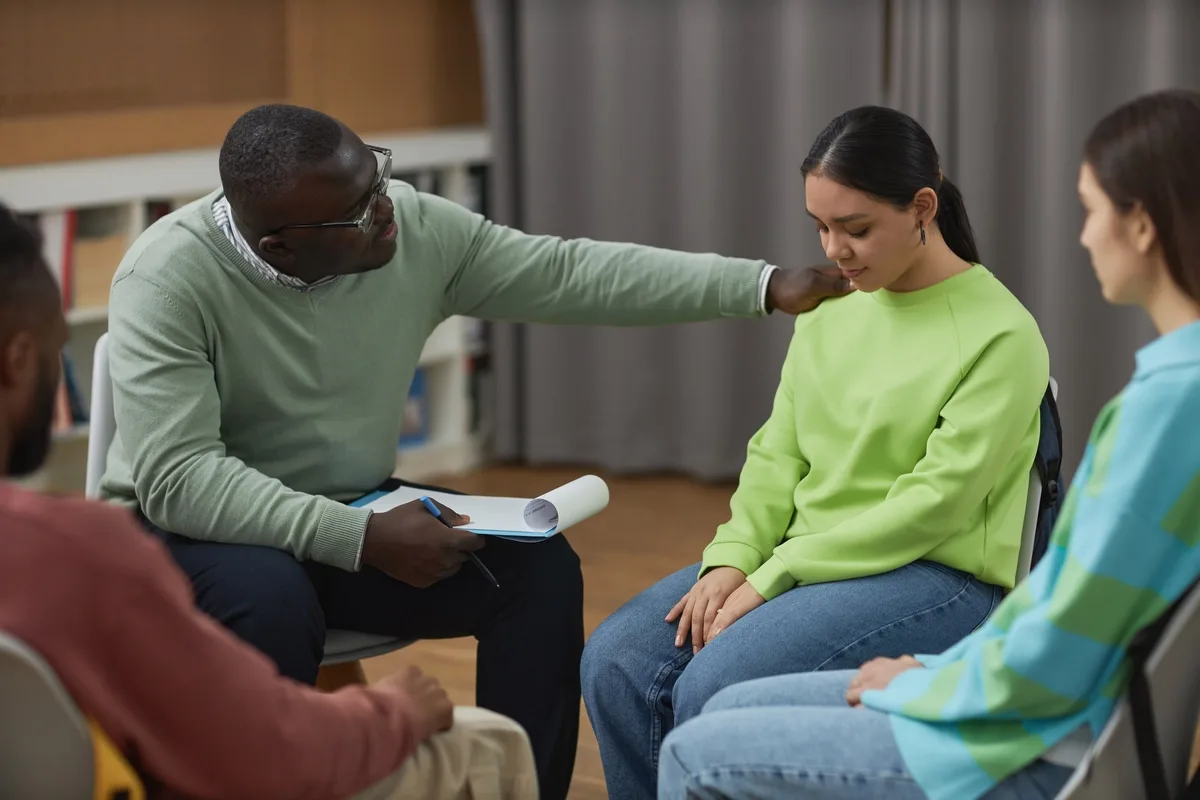24/7 Helpline:
(866) 899-221924/7 Helpline:
(866) 899-2219
Learn more about Group Therapy centers in Howard County
Group Therapy in Other Counties

Other Insurance Options

Optima

Meritain

American Behavioral

WellCare Health Plans

Humana

GEHA

Medical Mutual of Ohio

Lucent

ComPsych

CareFirst

Access to Recovery (ATR) Voucher

Health Choice

BHS | Behavioral Health Systems

BlueShield

Sliding scale payment assistance

Absolute Total Care

EmblemHealth

Evernorth

Optum

CareSource

JAEL Health Services
JAEL Health Services is a private rehab located in Ellicott City, Maryland. JAEL Health Services spe...




















































































































































































































Counseling Resources
Counseling Resources is a private rehab located in Ellicott City, Maryland. Counseling Resources spe...

Yudaguru Integrative Wellness
Yudaguru Integrative Wellness is a counseling center located in Ellicott City, Maryland. Lead by Abh...

















































































































